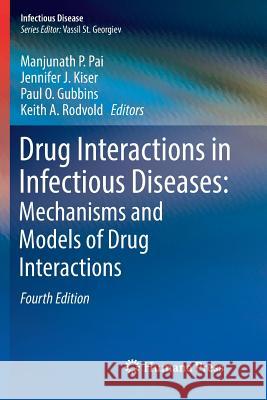Drug Interactions in Infectious Diseases: Mechanisms and Models of Drug Interactions » książka
topmenu
Drug Interactions in Infectious Diseases: Mechanisms and Models of Drug Interactions
ISBN-13: 9783030101985 / Angielski / Miękka / 2019 / 326 str.
Kategorie:
Kategorie BISAC:
Wydawca:
Humana Press
Seria wydawnicza:
Język:
Angielski
ISBN-13:
9783030101985
Rok wydania:
2019
Wydanie:
Softcover Repri
Ilość stron:
326
Waga:
0.48 kg
Wymiary:
23.39 x 15.6 x 1.83
Oprawa:
Miękka
Wolumenów:
01
Dodatkowe informacje:
Wydanie ilustrowane











